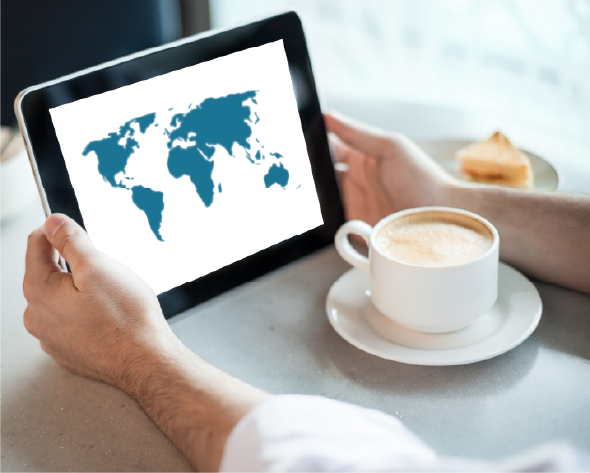What Happens When I Switch VPN Locations?

What Happens When I Switch VPN Locations?
When using a VPN (Virtual Private Network), one of the most powerful features at your disposal is the ability to switch VPN server locations. But what actually happens behind the scenes when you change your VPN location, and how does it affect your online experience? In this post, we’ll break down exactly what happens when you switch VPN locations and why it matters.
1. Your IP Address Changes
One of the core functions of a VPN is to mask your real IP address by routing your internet traffic through a server in a different location. When you switch VPN locations, the server you're connected to changes, meaning your IP address also changes.
For example, if you're initially connected to a server in the United States and then switch to one in Germany, your IP address will change from one associated with the U.S. to one associated with Germany. As a result, websites and services will now see your location as Germany rather than the U.S.
2. Your Internet Traffic is Rerouted
The moment you switch VPN locations, your internet traffic is rerouted through the new server. This means all your browsing data, downloads, and other online activities now pass through the VPN server in the new location.
This switch is seamless from your perspective as a user. Your device disconnects from the original server and reconnects to the new one, typically in just a few seconds. During this transition, your VPN provider ensures that the switch is smooth, so your online connection remains stable.
3. Access to Geo-Restricted Content Changes
One of the primary reasons people switch VPN locations is to access geo-restricted content. Streaming services like Netflix, Hulu, and BBC iPlayer often limit content availability based on your physical location.
When you change VPN locations, you can bypass these restrictions:
- Switch to a U.S. server to access content available only in the United States.
- Switch to a UK server to watch shows on BBC iPlayer.
- Switch to a different region to access local websites, news, and services that may be unavailable in your country.
By changing your VPN location, you can virtually “travel” to different regions and access content as if you were physically in that location.
4. Potential Speed Differences
The physical location of the VPN server you choose can affect your internet speed. When you switch to a VPN server that is closer to your actual physical location, you may experience faster speeds because your data has a shorter distance to travel.
However, if you switch to a server in a faraway country, such as from Europe to Asia, you might notice a slight drop in connection speed due to the increased distance your data must travel. High-quality VPN providers, like JourneyVPN, mitigate this issue by optimizing servers and maintaining fast connection speeds globally, but it’s something to keep in mind when choosing a server location.
5. Online Security and Privacy Remain Intact
Switching VPN locations doesn’t compromise your security. Whether you're connected to a server in New York or Tokyo, your data remains encrypted. This means that even if you're switching between locations, your sensitive information, browsing activity, and online identity are still protected from hackers, ISPs, and government surveillance.
VPNs like JourneyVPN use advanced encryption protocols, so the level of security remains consistent no matter which server location you choose. The only thing that changes is the geographic location of your IP address.
6. Regional Prices and Deals
Another advantage of switching VPN locations is the ability to access regional pricing. Many online stores and services display different prices based on the user's location. By switching to a VPN server in a different region, you can compare prices and potentially save money on purchases, flight tickets, software subscriptions, or even hotel bookings.
For example:
- Flight Tickets: Prices may vary depending on where you're purchasing from. Switching to a different VPN location could reveal cheaper flight prices.
- Subscriptions: Services like software tools or streaming platforms sometimes offer different rates based on local purchasing power.
By exploring different VPN locations, you might find better deals on a wide variety of services.
7. Your Connection May Temporarily Drop
While most VPN switches happen quickly, there is a brief moment when your device disconnects from the previous server and reconnects to the new one. During this transition, your connection may drop for a second or two. After that, your traffic will be fully rerouted through the new server, and you can resume your activities.
This brief disconnection is normal and generally happens seamlessly. A high-quality VPN service like JourneyVPN ensures minimal downtime during these switches, so your online activities aren't disrupted.
Why Does Switching VPN Locations Matter?
Switching VPN locations can dramatically change your online experience. Whether you’re trying to:
- Access content from a different country
- Find better prices
- Maintain your privacy while traveling
- Improve your connection speed by connecting to a closer server
A VPN gives you the flexibility to choose how and where you want to connect.
How JourneyVPN Makes Switching Simple
At JourneyVPN, we understand the importance of a smooth, flexible VPN experience. With our user-friendly interface, switching between server locations is just a click away. Whether you're looking to unlock content from a different region or optimize your connection speed, JourneyVPN offers fast, secure servers around the globe, ensuring that your switch happens smoothly and securely.